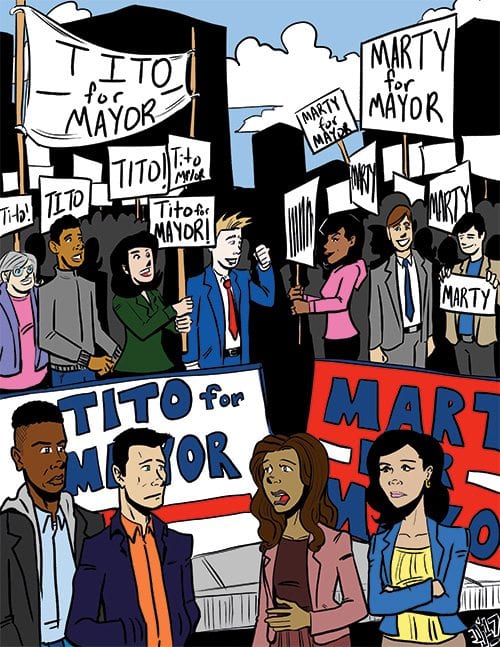Voters of color must flex political muscle
Much at stake in Nov. 7 election

With the election of Barack Obama as president, many African Americans believed that a non-racist era in politics had emerged. For countless elections, black voters had been encouraged to vote, but the candidates were always white, and there was little hope that politicians had the desire or the capacity to ameliorate the country’s acceptance of racial discrimination. But it seems now that the hope brought by Obama has been defiled by the election of Donald Trump.
Voters in Massachusetts had led the way on the ideal of electing political leaders on the basis of their competence and character without being limited by consideration of race. In 1966 Massachusetts voters elected Edward W. Brooke as the first African American to be elected to the United States Senate in a general election. And in 2006, Deval Patrick was elected governor. Like Sen. Brooke, Gov. Patrick was re-elected in recognition of the high quality of his performance.
One would think that this political history would render the state a bleak landscape for campaigns of racist candidates. Surprisingly, Trump did very well in the 2016 Republican primary. Even with five candidates in the race, Trump tallied 49.3 percent of the total. This was one of the highest state totals in the primary campaign. The inescapable conclusion is that Massachusetts Republicans prefer the Trump type of politics.
While Hillary Clinton had 80.6 percent of the state vote in the Nov. 8, 2016 presidential election, more than 26 percent of the voters in South Boston and in West Roxbury voted for Trump. In the primary, 40.8 percent of Boston Republicans voted for Trump. Even though Boston is considered to be a strong Democratic redoubt, Trump supporters have clearly penetrated its precincts.
This creates a special problem for blacks because politicians have to respond to the needs of powerful political blocs. Aggressive elements get special attention to their demands. For example, the acceptance of excessive police force pay scales, the limitation of citizen review of police conduct, police refusal to wear body cameras and limitations on stop-and-frisk procedures are all the result of a strong police voting bloc.
Without a countervailing political entity, a mayor will be forced to oblige the interests of the more powerful group. In the present election, Marty Walsh won 65 percent of the vote compared with 29 percent for Tito Jackson. The vote was closer in Ward 12 with Jackson getting 1,247 votes compared with 1,026 for Walsh, a margin of 221 votes. In the more Trump-oriented communities the vote totals shifted substantially to Walsh.
Fortunately there are two competent candidates for mayor. Black voters have to begin to think strategically. It would be disastrous with the Trump attitudes so influencing public policy to have a powerless black and Latino electorate. Those not registered to vote should do so and go to the polls on Tuesday, Nov. 7.
When playing quarterback for the San Francisco 49ers, Colin Kaepernick took a knee to protest the random police shootings of unarmed blacks. He properly understood that these acts violated citizen’s constitutional rights. He became a sole protester, putting his future security at risk. When other players finally joined in protest, Trump became abusive.
Those opposed to racial equality find fault with “Black Lives Matter,” disruptive protests for rights, as well as peaceful NFL pregame demonstrations. Colin decided to kneel. It’s time for the rest of us to stand up! Equal rights are still at stake.






